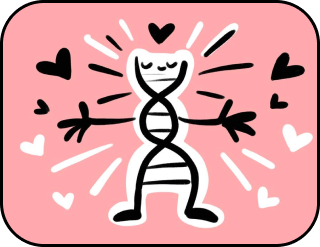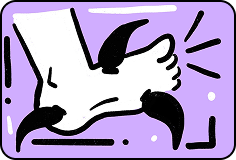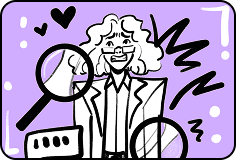Myths about superheroes and the brain: Debunking popular neuroscience myths
“Our psyche serves us,” “Your brain is always on your side” We’ve heard these sayings before, haven’t we?
But has anyone ever considered comparing the brain’s abilities to those of a superhero? After all, our brain truly is an extraordinary mechanism, regulating and supporting the functioning of our entire bodies. Like a superhero, it stands guard and protects us from calamities, stops us from making at times not the wisest of decisions, maintains our vitality, and gives us much-needed balance.
The Global Technology magazine’s editorial staff has decided to conduct an experiment and compare the qualities of the brain to the qualities of superheroes, and in doing so bust some popular myths that have been associated with grey matter and superheroes alike. Here’s what we ended up with.
Every superhero possesses qualities unlike those of anybody else
That is self-evident, of course. Every superhero has a set of his own exceptional qualities that distinguish him from other superheroes. For instance, one of them may be able to fly while another possesses an unparalleled punching force.
The same could be said of the brain. At first blush, one could think that one brain is the same as any other, but when you start to look a little bit closer, you can see that every brain is exceptional and unlike any other.
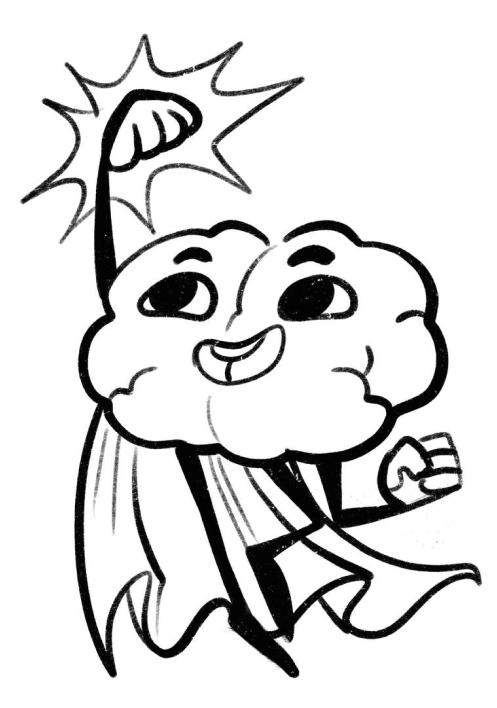
A study conducted at the University of Zurich showed that each of us has our own unique anatomy, featuring a combination of life circumstances and genetic traits. Life experience, lived emotions, and indelible impressions leave a trace in the brain’s anatomy and when you add genetics into the mix as well, such a combination renders each brain unique in one hundred percent of cases.
A superhero’s true power is his character
The real qualities that make a superhero what he is have nothing to do with his physical strength. The true power that a superhero wields is his guts, courage, and determination.
Like a superhero, our brain wholeheartedly stands guard ensuring the safety of our lives day and night. It looks out for the smallest changes and disruptions in the ordinary functioning of our bodies and jumps in to help as a gut reaction to restore the body’s functioning to its typical comfortable state of affairs.
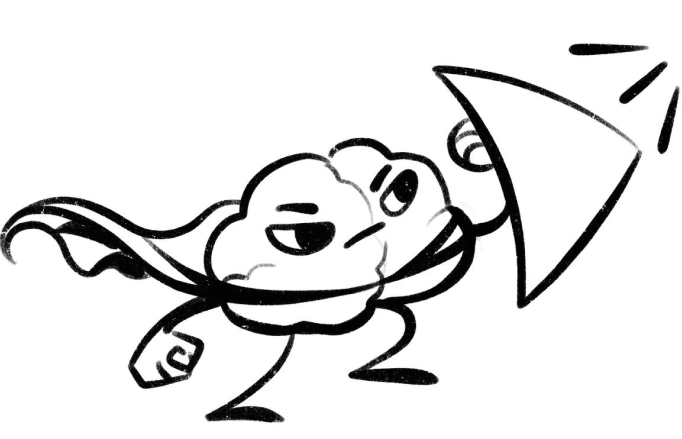
It’d be hard to surmise how much our brain actually does for us. It’s responsible for regulating things that we sometimes don’t even think about: for instance, regulating our builds, sleep and wakefulness schedule, as well as producing hormones responsible for height and bodily development. The brain helps us speak, feel, balance, cry, sneeze, and laugh. And if you really think about it, you start to realize that our brain truly sets the stage for our bodies to live a better life.
Some legends about superheroes don’t always turn out to be true
One of the most widespread myths about superheroes is that they’re omnipotent. The reality is that superheroes have a variety of abilities based on their physical and intellectual capacities.
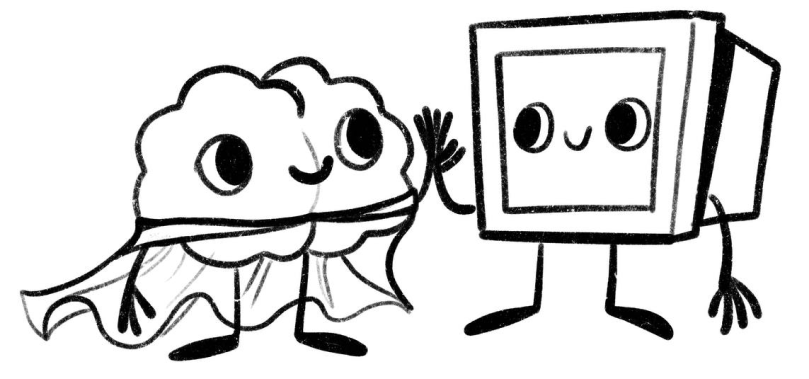
The most widely believed myth about the brain is that our brain works like a computer. For over half a century, many psychologists, linguists, neuroscientists, and other experts asserted that the brain’s functioning is similar to that of a computer; however, that’s not quite true. The brain carries out other functions that differ from a computing device.
If you look at history, you can see that similar affirmations have been made at each stage of human development. For instance, when the first aqueduct was invented, people believed that the brain performed a function just like it – pumping bodily liquid from one place to another.
Around the same time that the telegraph was invented, scientists discovered that the brain has electricity too. Like a telegraph, it transmits information from one region of the brain to another, connected by bright electric flashes.
Later on, when the computer came onto the scene, it became fashionable to believe that the brain works just in the same way and is based on the same model. However, what a computer does is working with information, processing it, storing it, and reproducing it. The brain, however, is engaged in a completely different type of activity – outpacing it entirely. Numerous studies in recent years have proven that. In other words, a computer processes information that already exists while the brain collects information which may come in handy to it in the future. Certain brain neurons try to predict what is about, relying on experience and things that are going on at the present moment.
For instance, the brain evokes thirst, sending a message to the body that it’s time to drink some water. Before any particular need for water has arrived, the brain already knows that it is about to ensue within the next half an hour. Consider that after you drink a cup of water, it takes the water 20 minutes before it reaches the blood circulation system. Like a superhero, the brain strives to prevent tragedies, in this case – dehydration.
A superhero utilizes all of his capacities and abilities
This is indeed true, since sometimes, in order to save the world, he has to work to the full extent of his capacities.
Likewise, our brain sometimes works to the maximum of its capacity, devoting a full 100% of its effort to a selected task. And once again, we’ve run into another common myth that we use only 5-10% of our brain.
Just picture how many actions we take within a single unit of time: we act, think, and encounter external circumstances, utilizing functions of various regions of the brain in the process. Just observe yourself and you will notice the sheer quantity of events you’re engaged in during a single moment: when the sun glares at you, you squint; then a gust of cool air comes at you and you stand in the way to cool off; meanwhile, you’re taking a walk, listening to all the sounds around you, thinking wonderful thoughts, and keeping alert to stay safe within your surroundings. You dream of the future and follow a map route you’ve memorized in your head on your way to your destination.
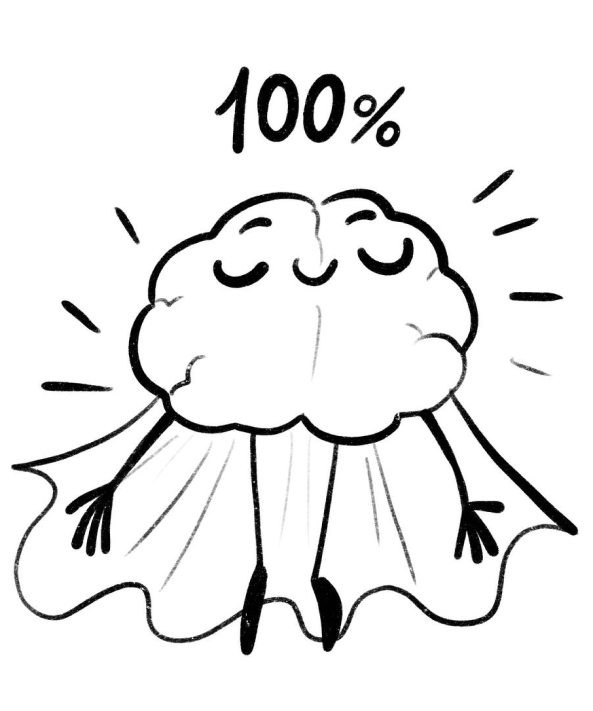
Could all of this be embodied while only utilizing 10% of your brain? There’s a specific region of the brain responsible for every action you take, relying on a certain set of consolidated functions. The brain is a network consisting of 128 billion neurons functioning as one major structure adapting to changes. Your 128 billion neurons continuously interact with each other, all night and all day, providing for your vital activity.
I wish I could just take a magic pill and become a superhero
There is no such pill. People aren’t born superheroes. They become them by tirelessly working on themselves, cultivating physical and mental strength within themselves, setting goals to be conquered, and developing the desire to be the best version of themselves while staying on the side of good.
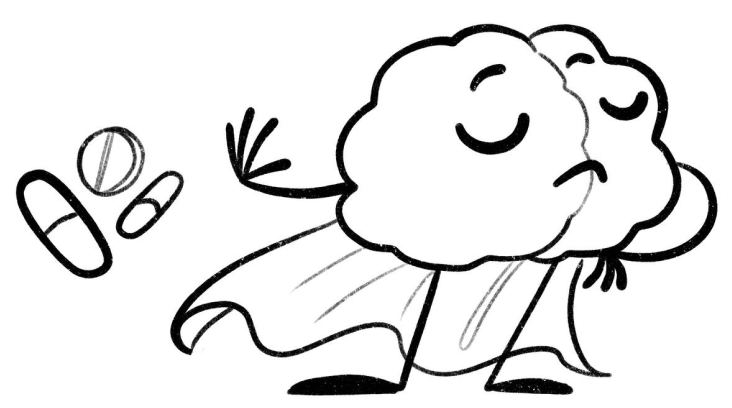
There are no pills that exist to create superheroes, just like there are no pills that help our brain become super smart. Dreamers and visionaries have given us a myth of phenomenal pills capable of boosting the brain’s efficiency. In reality, science has a long way to go before it’ll be able to invent something like that and start pharmacologically correcting the brain’s cognitive functioning. Most existing neurostimulant preparations have an unclear action mechanism and often unproven or limited effectiveness as well.
It’s important to remember that the human brain is one of the most complex systems in existence. Based on various estimations, it houses 80 to 100 billion cells, each one of them capable of quickly establishing around 5,000 connections with neighboring ones. It’s far from a certainty that one single pill could handle as complex a mechanism as that.
As a superhero develops his own qualities, so too does the brain develop by way of its physical activity, a properly balanced diet, healthy sleep, and diverse social activity.
Every superhero constantly works on himself and his abilities
All you have to do is think about any superhero. Every superhero knows that if he doesn’t keep developing his physical and intellectual abilities, one day the villain could end up winning.
That’s precisely how our brains are built as well: it needs constant training and development. Regular training has the ability to substantially enhance brain activity and people’s lives.

In 2016, a research report was presented under the code name ACTIVE – “Advanced Cognitive Training for Independent and Vital Elderly”.
This study was funded by the National Aging Institute. 2,832 apparently healthy senior citizens participated in it. The participants were randomly divided into four groups. The average age of the participants at the beginning of the study was 73.7.
One group didn’t complete any training; the two other ones learned different tricks for enhancing their memory and logic; while the fourth spent ten hours a day playing a particular type of video games that enhanced their “information processing speed”.
Ten years later, after the study was over, it turned out that the participants of the fourth group had been in four times fewer car accidents than the other groups. After ten years had passed, the risk of developing dementia dropped by half among those that completed a maximum training course to enhance their brain’s reaction speed.
These events provide the grounds to conclude that regular sessions are not only capable of maintaining a healthy cerebrum but also significantly enhancing some of its abilities. But it’s important to remember not to overdo it, since intellectual burnout is capable of causing sluggishness and reducing the brain’s functioning speed.
Superheroes always believe in themselves, their powers, and that the best outcome for the situation will be achieved
You better believe it! Otherwise, they couldn’t be superheroes, beat the villains, or save the world from annihilation. Perhaps believing in their own success is what allows superheroes to remain invincible.
It’s known to be true that when you concentrate on a particular mental activity, as this is taking place, your brain actively generates new neural connections. Biologists refer to this process as neuroplasticity. Every time you think about something, the brain builds new neural bridges and this is something important to start noticing, as your thought will consolidate in your brain. For instance, if you think about how miserable you are, the brain will consolidate that idea and find ongoing circumstances to use as evidence for that. But on the other hand, if you start thinking about how happy you are, your brain will also start noticing new capacities that will allow you to turn your subconscious framework into a new reality.
You have the power to forge a connection with your consciousness and change your reality. You have the capability to attain anything you want. The most important thing is to believe it. After all, any physical progress starts with a thought, which brings about certain reactions in the brain, and those reactions, in turn, lead the body to the necessary, desired result.
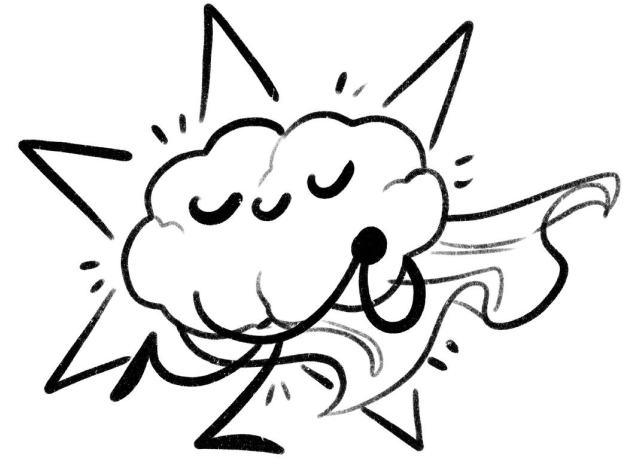
A superhero sets his sights on a single goal
To achieve the best outcome in a battle between justice and the world’s underbelly, the superhero must have the ability to focus on a single goal. The superhero must be able to concentrate to the fullest extent of his ability and make quick decisions.
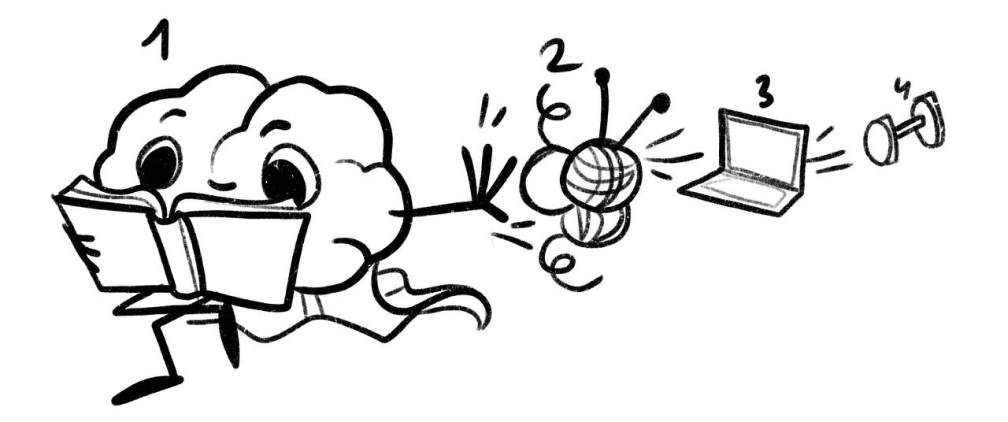
Like a superhero, the brain cannot be effective while it is working on several tasks at the same time. And again we find ourselves stumbling upon a myth, that of the multitasking human brain.
The fact of the matter is that nature did not design our brain for multitasking. Its default state is focusing on one task at a time. Even so, multitasking is promoted as a necessary skill in the modern world.
Researchers from the University of Sussex have determined that people engaged in a high degree of multitasking exhibit a reduced density of brain matter in the anterior cingulate cortex, responsible for empathy as well as cognitive and emotional control. This means that multitasking not only changes the way we think but also brings about change in the structure of the brain itself.
Multitasking does not equate to productivity. While engaged in multiple tasks at the same time, we do not do a good job performing a single one of them. Multitasking is just a veneer of actions and business without achieving the actual result.
In the words of Arthur Markman, a professor at the Psychology Department at the University of Texas, “Dividing attention across multiple activities is taxing on the brain, and can often come at the expense of real productivity.”
The most effective thing to do is to carry out one single task within a particular time unit. On top of that, writing up a plan for the day or having a specific step-by-step strategy will allow one to stay attentive and save one’s brain from overheating.
Superheroes have weaknesses too
Superheroes aren’t invincible. They can be wounded. Superheroes know how to age, but their bodies are capable of quickly regenerating.
There exists a myth that a damaged brain is not capable of regenerating, but a multitude of research has shown the opposite – that our brain in fact features a remarkable ability to regenerate. Its various functions are capable of helping the brain achieve, while not its original condition, still a condition quite suitable for living a normal life.
For instance, the brain’s neuroplasticity provides a basis to reset neural connections, reorganizing existing connections by way of passing on the functions of damaged neurons to neighboring neurons. The brain creates new synapses and strengthens existing connections.
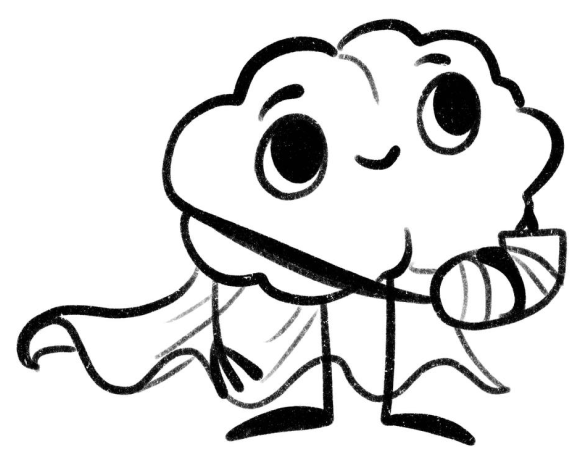
The cerebrum also contains cells that play the role of “garbage collectors”. They remove damaged cells and contribute to the tissues’ restoration. Meanwhile, other cells support the neurons and facilitate their restoration by way of discharging growth factors and regulating blood supply.
However, rehabilitation of the entire body can facilitate the restoration of brain functioning, by way of stimulating neuroplasticity and reorganizing neural networks.
A superhero can only be a creator or an analyst, but not both
This is false, of course. A superhero knows have to use a variety of skills under conditions that call for it. When it’s time for a creative approach, he creates. At other times, when strategy and tactics prove necessary, the superhero activates his logic and analysis.
No brain, nor any superhero, is ever solely left-brained or right-brained. This myth saw its roots in 1973 when an article appeared attached to the New York Times in which future Nobel prizewinner Roger Sperry declared, “Each of us is either predominantly left-brained or right-brained.” It was also stated that the right hemisphere of the brain is responsible for creative abilities, the left one – for logical and analytical abilities. 40 years later, this myth was busted by a study conducted by scientists at the University of Utah. They studied the results of brain MRIs of over a thousand people aged 7 to 29 years old to ascertain whether some people used the left hemisphere of their brain more than the right one while others used the right one more. When it was over, the scientists concluded, “The data we acquired flies in the face of the general depiction of the brain that presumes that some individuals have a more developed neural network in the right hemisphere while others have a more developed left-hemisphere neural network .”
The conclusion is simple: in certain situations, the brain utilizes not only different hemispheres but also different regions of the brain. It all depends on the task that the brain is tackling.
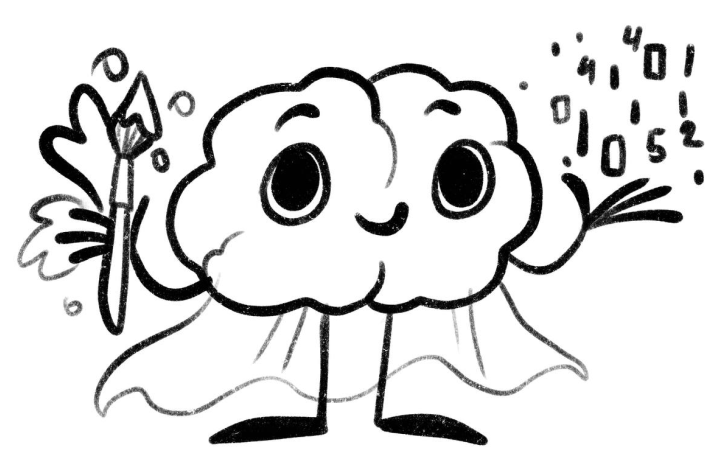
Even while working to the full extent of its capability, our brain always strives to create the optimal conditions it can for the body, and that quality is worthy of a true superhero. Your brain is always on your side.
Believe in it! Or no one else will.
According to the Big Bang Theory, the Great Explosion of discoveries starts right now.
Thank you!


